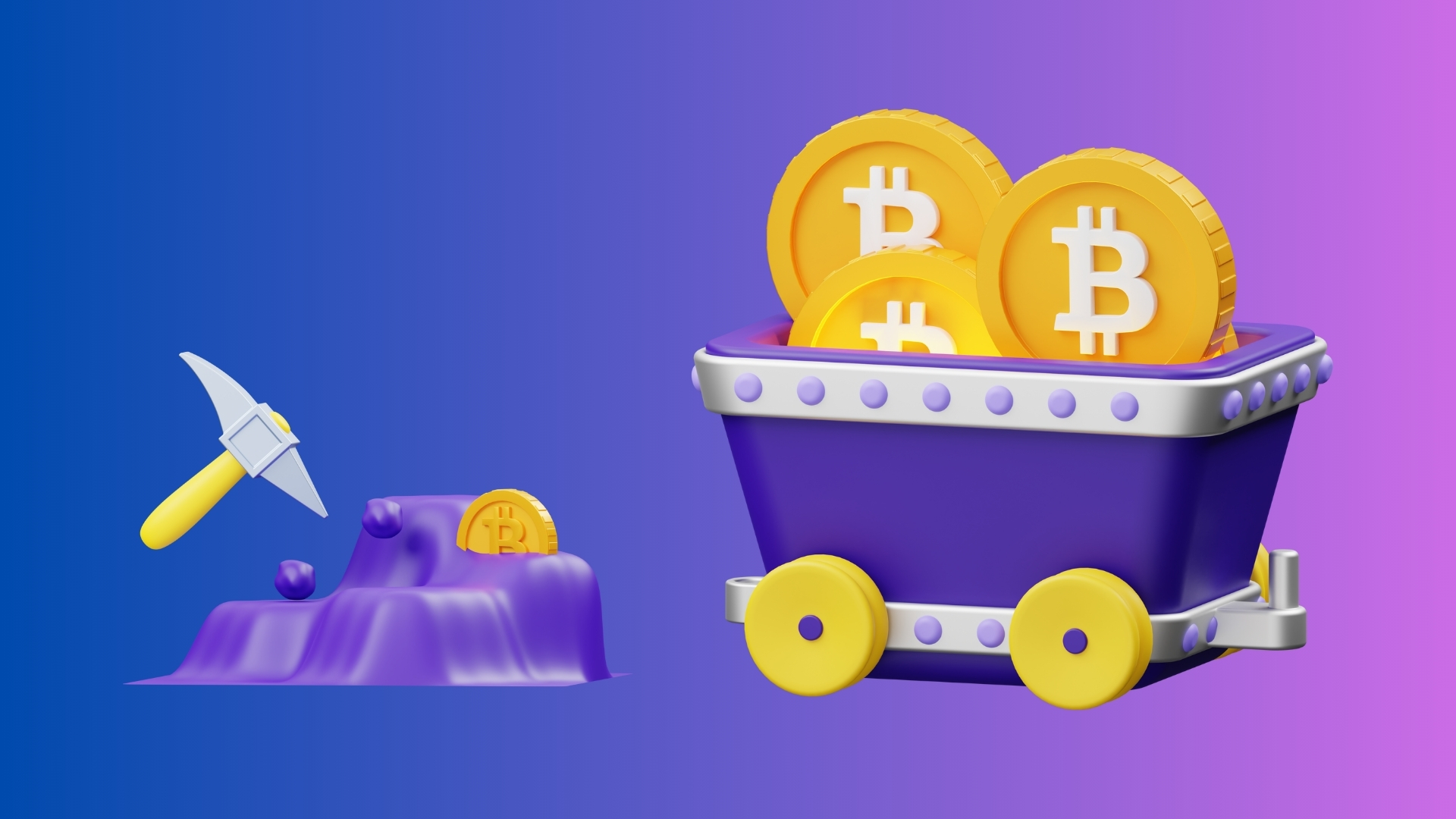What is Bitcoin mining ?
Bitcoin mining is the process by which new bitcoins are created and transactions are added to the blockchain. It involves solving complex mathematical puzzles using powerful computers. Miners compete to solve these puzzles, and the first to solve it gets to add a new block of transactions to the blockchain, earning new bitcoins as a reward.
How does Bitcoin mining work?
Bitcoin mining is essential for maintaining the Bitcoin network and creating new bitcoins. Here’s how it works in simpler terms:
Collecting Transactions: Miners gather transactions made with Bitcoin. These transactions are like digital records of people sending and receiving bitcoins.
Solving Puzzles: Miners use powerful computers to solve complicated math puzzles. These puzzles are designed to make sure transactions are genuine and secure.
Adding to the Blockchain: When a miner solves a puzzle, they create a new block of transactions. This block is added to the blockchain, which is a public ledger that records all Bitcoin transactions ever made.
Earning Rewards: The miner who solves the puzzle first gets rewarded with new bitcoins. This reward is called the block reward. They also get transaction fees from the transactions in the block.
Securing the Network: By solving puzzles and adding blocks to the blockchain, miners help keep the Bitcoin network safe and trustworthy. This process prevents fraud and ensures everyone’s bitcoins are used correctly.
Bitcoin mining is competitive, with miners around the world racing to solve puzzles and earn rewards. It’s a critical part of how Bitcoin works, ensuring its security and reliability as a digital currency.
Why is Bitcoin mining important?
Bitcoin mining is crucial for the functioning of the Bitcoin network. Here’s why it matters:
1. Securing the Network
Bitcoin operates on a decentralized network of computers, known as nodes, that verify and record transactions. Miners play a vital role in this process by securing the network through their mining activities.
2. Creating New Bitcoins
Mining is the process by which new bitcoins are introduced into circulation. Miners compete to solve complex mathematical puzzles, and the first one to solve the puzzle gets to add a new block of transactions to the blockchain. As a reward for their efforts, they receive newly minted bitcoins, which incentivizes them to continue mining.
3. Processing Transactions
Beyond creating new bitcoins, miners are responsible for processing and validating transactions on the Bitcoin network. When someone sends bitcoins to another user, miners verify these transactions and include them in a block. This verification process ensures that transactions are legitimate and prevents double-spending.
4. Network Integrity and Trust
By participating in the mining process, miners contribute to the overall security and integrity of the Bitcoin network. The decentralized nature of Bitcoin means that no single entity controls the network, making it resistant to censorship and fraud.
The challenges of Bitcoin mining
- High Energy Consumption: Mining requires significant energy to power the specialized hardware used to solve cryptographic puzzles. This energy consumption has environmental implications and can be costly.
- Increasing Difficulty: The difficulty of the puzzles adjusts approximately every two weeks to ensure a steady rate of block creation. As more miners join the network and computational power increases, the puzzles become more difficult to solve.
- Hardware Costs: Effective mining requires specialized hardware known as ASICs (Application-Specific Integrated Circuits). These devices are expensive and have a limited lifespan.
- Competition: The mining landscape is highly competitive. Large mining pools and companies dominate the industry, making it challenging for individual miners to compete.
The future of Bitcoin mining
- Renewable Energy: To address environmental concerns, there is a growing trend towards using renewable energy sources for mining operations. This shift could make mining more sustainable in the long run.
- Evolving Technology: Advances in mining technology, such as more efficient ASICs, could reduce energy consumption and costs.
- Increased Decentralization: Efforts to make mining more accessible and decentralized could help maintain the integrity and security of the Bitcoin network.
Conclusion
Bitcoin mining is a critical process that ensures the security, decentralization, and continuous operation of the Bitcoin network. While it presents challenges such as high energy consumption and increased competition, it also offers significant rewards for those who successfully contribute to the network. Understanding the intricacies of Bitcoin mining can help you appreciate its role in the broader cryptocurrency ecosystem and make informed decisions if you choose to participate.
Enroll on this Free Course


